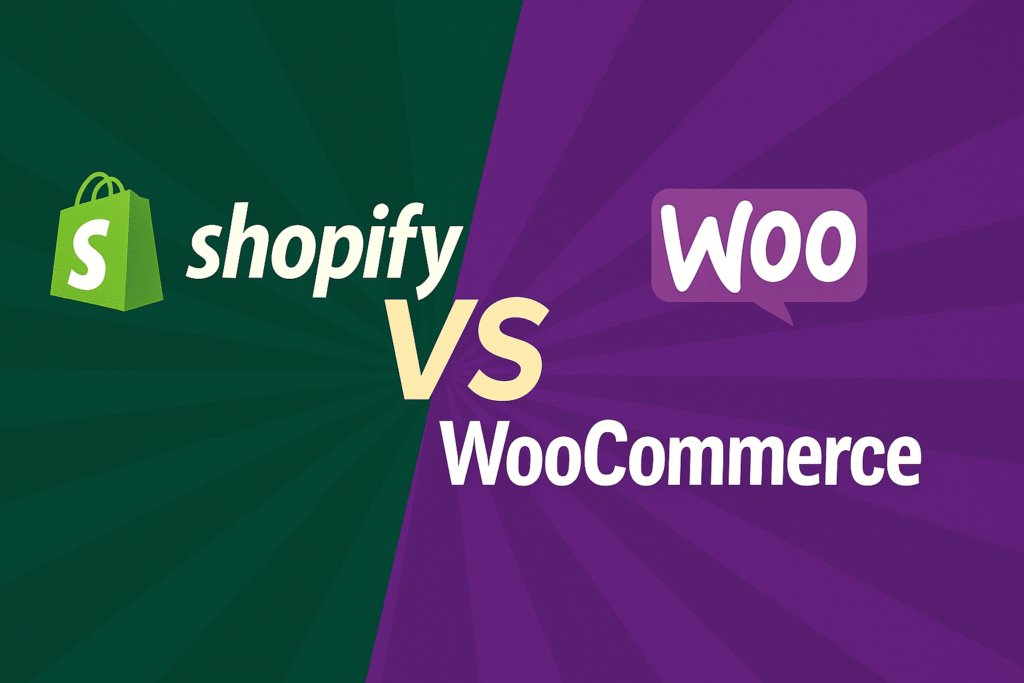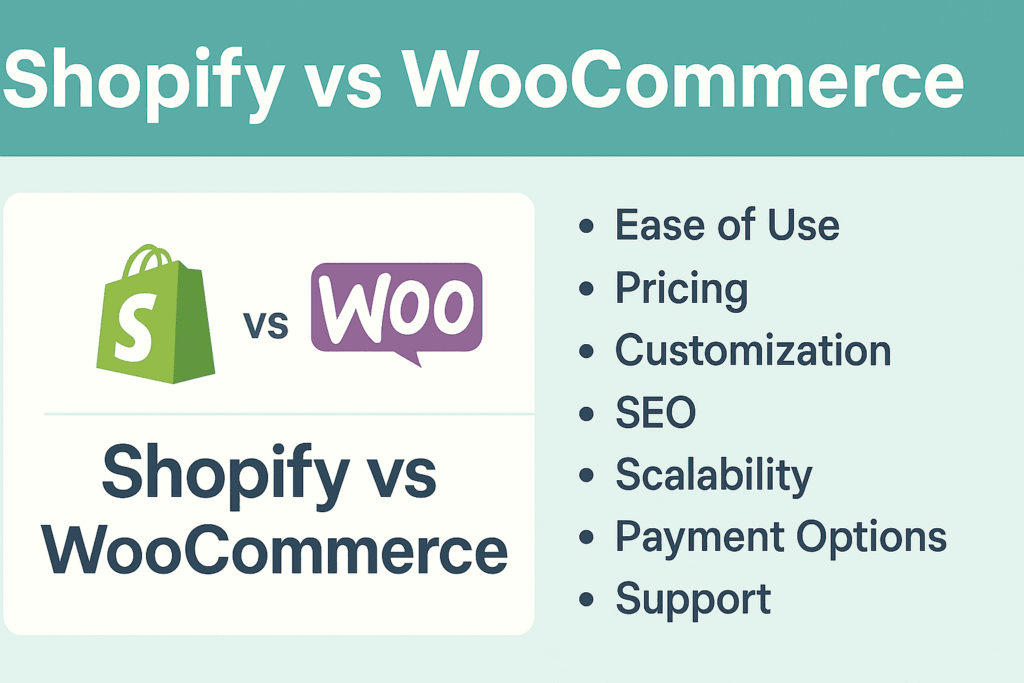
Shopify vs WooCommerce : Selecting the Best eCommerce Platform for Your Business
Launching an online store? The platform you choose can be a game-changer for your business. In the battle of Shopify vs WooCommerce, these two eCommerce giants dominate the industry—but which one suits your needs best? Whether you’re a beginner looking for a straightforward setup or a tech-savvy entrepreneur craving full customization, this guide breaks down the core differences to help you make a smart, strategic choice.
What is Shopify?
Shopify is a hosted eCommerce solution that offers all you need to create an online store. With an easy drag-and-drop interface and integrated hosting, Shopify is ideal for individuals who desire an easy experience without having to concern themselves with the technicalities of website operation.
What is WooCommerce?
WooCommerce is a powerful WordPress plugin that turns your website into a completely functional online shop. It has total control over customization and functionality, and so it is an excellent choice for companies that are seeking flexibility and scalability.
Shopify vs WooCommerce Key Differences:

1. Ease of Use
Shopify: Simplicity at Its Best
Shopify is user-friendly. The platform features an easy-to-use dashboard, drag-and-drop functionality, and a simple setup process. It is possible for someone with no technical expertise to set up a professional-looking store within minutes.
WooCommerce: More Control, But Technical Knowledge Needed
WooCommerce forces users to install and handle WordPress, which means there is a learning curve involved. Hosting, themes, and plugins require more effort to set up, but it gives greater control over customizing.
2. Customization and Flexibility
Shopify: Limited but Structured Customization
Shopify enables users to customize their store within its environment. Although there are themes and apps, customization is limited to Shopify’s environment.
WooCommerce: Unlimited Customization Options
WooCommerce is open-source, so you can change everything about your store. From themes to functionality, the world is your oyster, but you might need coding skills or a developer’s assistance.
3. Pricing and Costs
Shopify: Fixed Monthly Plans
Shopify has a subscription-based pricing model, starting at $29/month. It includes hosting, security, and support but may require additional costs for premium themes and apps.
WooCommerce: Flexible but Variable Costs
WooCommerce is free to install, but costs arise from hosting, domain registration, security, and premium plugins. The overall expense depends on your chosen features and hosting provider.
4. Payment Options & Transaction Fees
Shopify: Transaction Fees on External Gateways
Shopify has various payment gateways supported but with added transaction fees (0.5% – 2%) except when using Shopify Payments.
WooCommerce: No Extra Fees
WooCommerce does not add transaction fees to the normal payment gateway fees, offering cost-efficient flexibility.
5. Scalability & Performance
Shopify: Handles Growth Effortlessly
Shopify’s cloud-hosted architecture facilitates effortless scalability, managing heavy traffic without the need for extra configuration.
WooCommerce: Dependent on Hosting Provider
With WooCommerce, scalability depends on your hosting plan. To manage large-scale growth, you’ll need a robust hosting provider and website optimizations.
6. SEO & Marketing Tools
Shopify: Built-in SEO with Limited Control
Shopify includes essential SEO tools but restricts deep customization of URLs and metadata, which may impact advanced SEO strategies.
WooCommerce: Superior SEO Capabilities
WooCommerce, which is built on WordPress, provides enhanced SEO customization via plugins such as Yoast SEO to help businesses optimize content for search rankings.
7. Support & Community
Shopify: 24/7 Dedicated Support
Shopify offers 24/7 customer support through chat, email, and phone to ensure prompt issue resolution.
WooCommerce: Strong Community but Limited Direct Support
WooCommerce is dependent on community support, forums, and third-party developers. Although there’s a large knowledge base, there’s no official 24/7 support as with Shopify.
Final Verdict: Which One Should You Choose?
When it comes to Shopify vs WooCommerce, your choice should reflect your business’s unique needs. Opt for Shopify if you’re looking for an all-in-one, stress-free eCommerce solution backed by reliable support. On the other hand, WooCommerce is ideal if you want total control, advanced customization, and maximum flexibility.
Both platforms bring powerful capabilities to the table, and the right fit ultimately depends on your goals, budget, and technical know-how. Whether you prioritize ease of use or crave full customizability, Shopify vs WooCommerce offers distinct advantages to help your online store succeed.
- The Power of UTM Parameters in Ad Campaigns

- Unlocking Maximum ROAS: Budget Scaling Secrets for 2025

- How to Use A/B Testing to Scale Paid Ad Performance

- Click-Through Rate (CTR) Hacks That Actually Work

- Meta Ads Funnel Strategies for Customer Acquisition

- Google Performance Max: Winning Strategies for E-commerce


